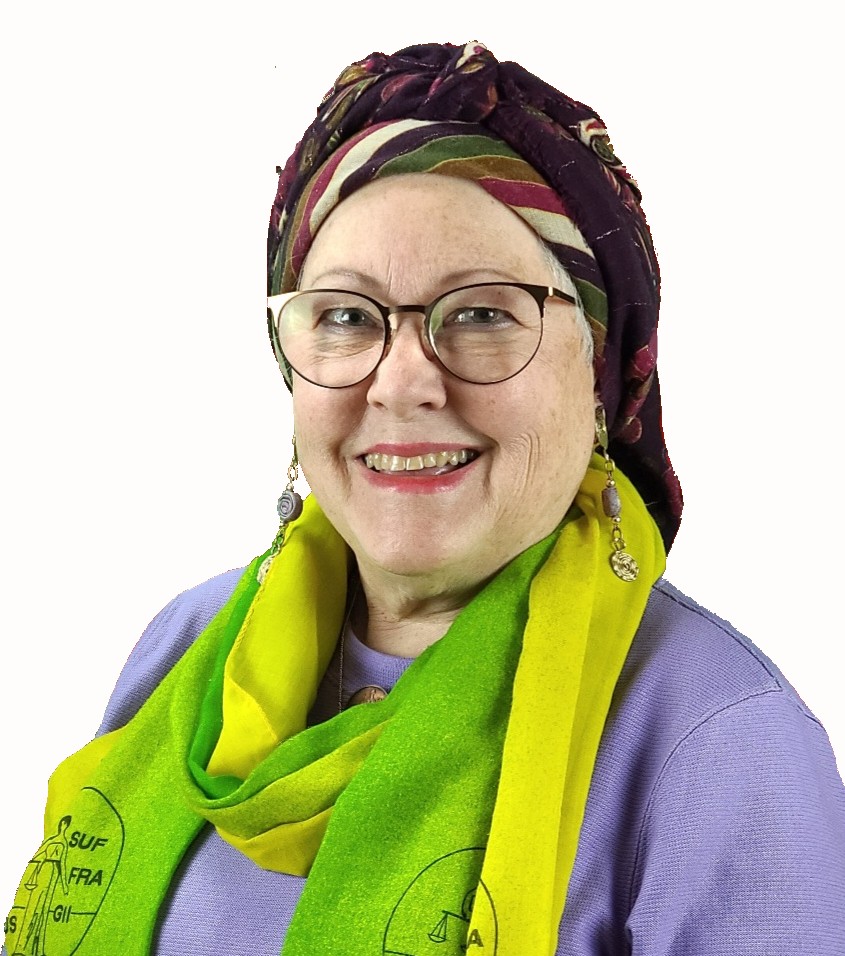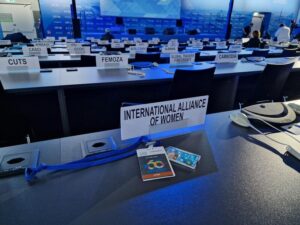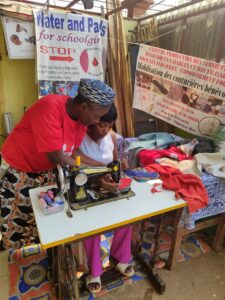To be commemorated annually on 29 October
For decades now, International Alliance of Women, along with other women’s organisations, has been talking about the inequalities in the field of care work, how it was paid, if at all, at a rate much less than that of other work. This was a particular area of concern for our Hon. President Joanna Manganara who focused on it repeatedly during her presidency. I am sure it gives her, as it does all of us, a certain satisfaction to see that the United Nations General Assembly has designated one day in its calendar to focus on this issue, which is closely allied with the Sustainable Development Goal No. 8: Decent Work and Economic Growth. Henceforth October 29th shall be observed as the International Day of Care and Support.
The statistics in this area are well known to feminist activists, how almost twice as many women as men work in care jobs and how three times as many women as men do this work without remuneration. The International Labor Organisation has recently issued a report on the topic Care work and care jobs for the future of decent work which gives a more detailed overview of the subject. It can be read in English, French and Spanish:
https://www.ilo.org/global/publications/books/WCMS_633135/lang–en/index.htm
I would like to share some thoughts that come to mind regarding this type of life-giving, life-enabling, and life-saving work and the outrageously poor pay.
Women are assumed to have a “natural” inclination to care, and the conclusion is that she does not need to get much in return for things she would “naturally” do anyway. If this natural drive or innate obligation to care is coupled with a love for this activity, just carrying out the care work can be reward enough. One would think.
One could expect that everyone loves their work, or at least enjoys doing it. On this basis, one could require everyone to waive financial remuneration.
Imagine the reaction of football stars if they were told that taking part in this game is part of their “natural instinct to play” and that because they like to do it – and would certainly like to do it even without being paid – they should go onto the field for minimum wage run. Instead of receiving salaries in the millions, they should give up most of their pay to the nurses who care for the seriously ill patients in the intensive care unit, or to the teachers who dedicate their lives to educating future generations, and accompany children into adulthood on a sustainable path in order to keep our society worth living in.
One might also question why repairing and maintaining vehicles is more profitable than applying bandages or performing manual therapy on people.
It is almost unbearable that the manufacturers of weapons systems can amass far more wealth than the nursing staff in a hospital who care for people injured by war or shooting until they hopefully recover or sometimes unfortunately even when they die.
We can think of many more examples that illustrate how little financial recognition people, especially women, who provide care receive. Pats on the back won’t pay the heating bill.
This newly declared Day of Care and Support should give us pause and an opportunity to think about what is really important in our lives and how society should reward the contributions made by caregivers of all kinds. Society usually does this through money, and it is high time that the money flowing into the caring economy should reflect that importance.

Commons Photo Credit (Banner): Source



